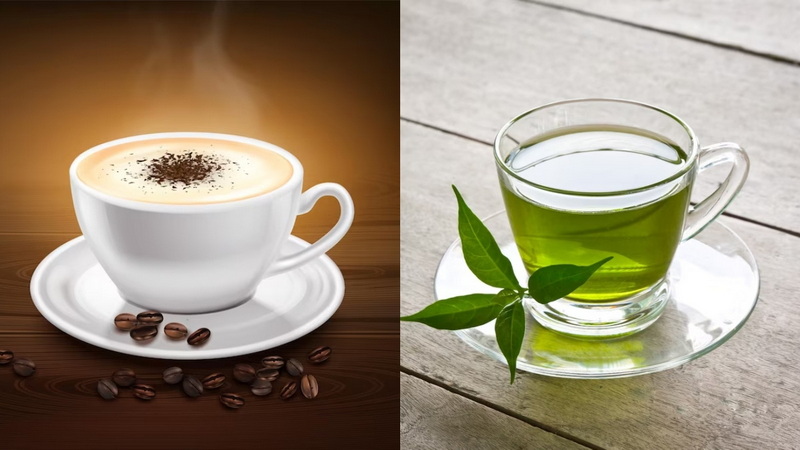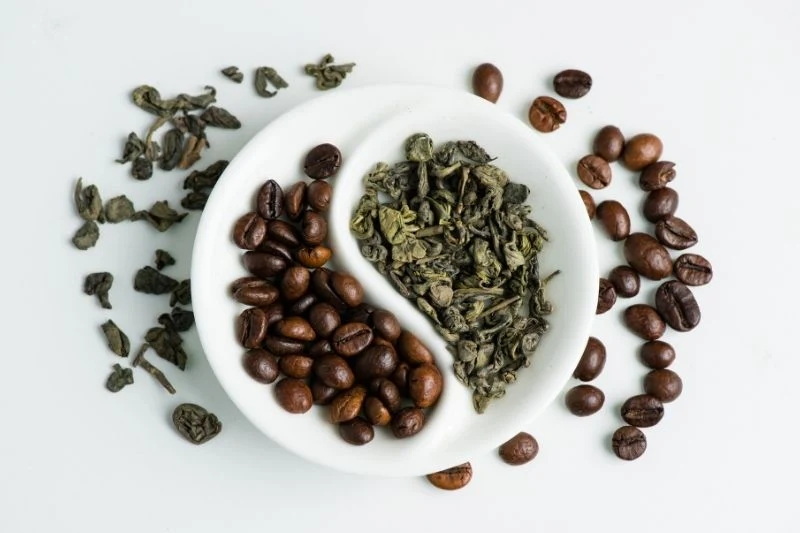Content Menu
● Understanding Green Tea Extract
>> What is Green Tea Extract?
>> Caffeine Content in Green Tea Extract
● Factors Influencing Caffeine Levels
● Health Benefits Associated with Green Tea Extract
● Potential Side Effects
● How to Incorporate Green Tea Extract into Your Diet
● Popular Forms of Green Tea Extract
● Conclusion
● FAQ
>> 1. How much caffeine is typically found in a cup of brewed green tea?
>> 2. Can I take green tea extract if I am sensitive to caffeine?
>> 3. What are the main health benefits associated with green tea extract?
>> 4. Is there a risk of liver damage from taking green tea extract?
>> 5. How does the caffeine content in green tea compare to coffee?
● Citations:
Green tea extract has gained significant popularity as a dietary supplement, particularly for its health benefits and its caffeine content. This article delves into the caffeine content of green tea extract, specifically focusing on a 50 mg dosage, and explores its implications for health and wellness.

Understanding Green Tea Extract
Green tea extract is derived from the leaves of the Camellia sinensis plant and is rich in antioxidants, particularly catechins like epigallocatechin gallate (EGCG). These compounds are believed to contribute to various health benefits, including weight loss, improved brain function, and reduced risk of heart disease.
What is Green Tea Extract?
Green tea extract is a concentrated form of green tea that retains many of the beneficial compounds found in the leaves. It is available in various forms, including capsules, powders, and liquid extracts. The extraction process typically involves using solvents to isolate the active ingredients from the leaves, resulting in a product that is more potent than brewed green tea.
Caffeine Content in Green Tea Extract
The caffeine content in green tea extract can vary widely depending on several factors, including the type of extract and its concentration. Generally, a standard serving of green tea (about 8 ounces) contains approximately 30 to 50 mg of caffeine. However, when it comes to concentrated forms like green tea extract, the caffeine content can be significantly higher.
- Typical Caffeine Range: For a green tea extract capsule containing around 500 mg of extract, the caffeine content can range from 30 mg to over 200 mg. This variability is due to differences in processing methods and the specific type of green tea used.
- Specific Case of 50 mg Extract: If we consider a green tea extract that provides 50 mg of caffeine per 500 mg of extract, this means that for every 50 mg of green tea extract consumed, one could expect a caffeine content that aligns with this ratio. Therefore, if you consume a product that contains 50 mg of green tea extract, you would typically receive around 2.5 mg of caffeine.
Factors Influencing Caffeine Levels
Several factors can influence the amount of caffeine extracted from green tea:
- Type of Tea Leaves: Younger leaves generally contain more caffeine than older leaves. The specific variety also plays a role; for instance, matcha contains higher levels of caffeine compared to standard green tea due to its unique growing and harvesting methods.
- Brewing Time and Temperature: Longer brewing times and higher temperatures can increase caffeine extraction. For example, steeping green tea for longer than recommended can significantly boost its caffeine levels.
- Processing Methods: Different methods used to create extracts can result in varying levels of caffeine. Some manufacturers may use techniques that concentrate certain compounds while minimizing others.
Health Benefits Associated with Green Tea Extract
Green tea extract is often touted for its numerous health benefits:
- Weight Loss: The combination of caffeine and catechins in green tea may enhance metabolic rate and fat oxidation. Studies have shown that these compounds can help increase energy expenditure and promote fat burning during exercise.
- Antioxidant Properties: The high concentration of antioxidants in green tea extract helps combat oxidative stress. Antioxidants neutralize free radicals in the body, which can reduce inflammation and lower the risk of chronic diseases.
- Heart Health: Regular consumption has been linked to lower cholesterol levels and improved heart health. Research suggests that green tea extract may help reduce LDL cholesterol and triglycerides while increasing HDL cholesterol.
- Brain Function: Some studies suggest that the caffeine and L-theanine in green tea may improve cognitive function and alertness. L-theanine is known for its calming effects, which can counterbalance the stimulating effects of caffeine.
- Blood Sugar Regulation: Green tea extract may help improve insulin sensitivity and reduce blood sugar levels. This effect can be beneficial for individuals with type 2 diabetes or those at risk for developing it.

Potential Side Effects
While moderate consumption of green tea extract is generally considered safe for most people, excessive intake can lead to side effects due to its caffeine content:
- Caffeine Sensitivity: Individuals sensitive to caffeine may experience anxiety, insomnia, or digestive issues. Symptoms can vary based on individual tolerance levels.
- Liver Health Concerns: High doses of concentrated green tea extracts have been associated with rare cases of liver toxicity. It's crucial to adhere to recommended dosages to mitigate this risk.
- Interactions with Medications: Green tea extract may interact with certain medications, including blood thinners and medications for high blood pressure. Consulting with a healthcare provider before starting any new supplement is advisable.
How to Incorporate Green Tea Extract into Your Diet
If you're considering adding green tea extract to your wellness routine, here are some tips on how to do so safely:
- Start with Low Doses: Begin with a lower dose (around 250 mg) to assess your tolerance before gradually increasing it.
- Choose Quality Products: Look for reputable brands that provide third-party testing results. This ensures that you are consuming a product free from contaminants and accurately labeled regarding its active ingredients.
- Combine with Healthy Lifestyle Choices: For optimal benefits, combine green tea extract with a balanced diet and regular exercise. This holistic approach enhances weight loss efforts and overall health.
Popular Forms of Green Tea Extract
Green tea extract comes in various forms, each with unique advantages:
- Capsules/Tablets: These are convenient for those who prefer precise dosages without taste concerns.
- Powders: Powders can be mixed into smoothies or other beverages but require careful measurement for accurate dosing.
- Liquid Extracts: These are often more potent but may require dilution before consumption.
Conclusion
In summary, the amount of caffeine in a 50 mg dose of green tea extract is relatively low compared to other caffeinated beverages. However, it still contributes to the overall daily intake of caffeine, which should be monitored by individuals who are sensitive or trying to limit their caffeine consumption. The health benefits associated with green tea extract make it a popular choice among health enthusiasts, but moderation is key to avoiding potential side effects.

FAQ
1. How much caffeine is typically found in a cup of brewed green tea?
A standard cup (8 ounces) of brewed green tea contains approximately 30 to 50 mg of caffeine.
2. Can I take green tea extract if I am sensitive to caffeine?
Yes, but you should start with lower doses and monitor your body's response. Some extracts have minimal caffeine content.
3. What are the main health benefits associated with green tea extract?
Health benefits include weight loss support, antioxidant properties, improved heart health, and enhanced brain function.
4. Is there a risk of liver damage from taking green tea extract?
While rare, high doses of concentrated extracts have been linked to liver toxicity. It's essential to follow recommended dosages.
5. How does the caffeine content in green tea compare to coffee?
Coffee generally contains more caffeine than green tea; an average cup has about 95-165 mg compared to green tea's 30-50 mg per cup.
Citations:
[1] https://www.livestrong.com/article/186702-how-much-caffeine-is-in-green-tea-extract/
[2] https://health.clevelandclinic.org/green-tea-extract-a-better-way-to-boost-energy-or-not
[3] https://www.sugimotousa.com/blog/green-tea-vs-coffee-everything-you-need-to-know
[4] https://www.youtube.com/watch?v=RIbff5iD0GQ
[5] https://www.healthline.com/nutrition/10-benefits-of-green-tea-extract
[6] https://pmc.ncbi.nlm.nih.gov/articles/PMC3649093/
[7] https://www.medicalnewstoday.com/articles/269538
[8] https://www.youtube.com/watch?v=CkdqsIhHEhM
[9] https://www.healthline.com/nutrition/caffeine-in-green-tea
[10] https://cytomatrix.ca/products/green-tea-extract-90-v-caps/
[11] https://www.youtube.com/watch?v=eMuE16vLV_s
[12] https://www.elo.health/articles/green-tea-extract-supplements/
[13] https://www.healthline.com/nutrition/camellia-sinensis-leaf-extract
[14] https://www.webmd.com/drugs/2/drug-76714/green-tea-leaf-extract-oral/details
[15] https://www.reddit.com/r/chemistry/comments/3gt1zo/how_much_caffeine_in_green_tea_extract/
[16] https://www.urmc.rochester.edu/encyclopedia/content?contenttypeid=19&contentid=greenteaextract
[17] https://www.medicalnewstoday.com/articles/269538
[18] https://www.webmd.com/vitamins/ai/ingredientmono-960/green-tea
[19] https://pmc.ncbi.nlm.nih.gov/articles/PMC7098939/
[20] https://pmc.ncbi.nlm.nih.gov/articles/PMC4307170/






























